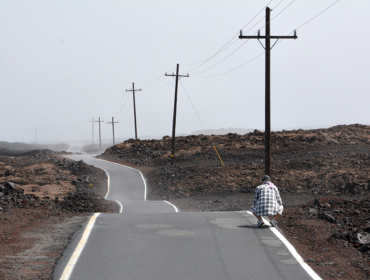I found a very interesting article about the harmful effects of painkillers in the New York Times. Especially now, where so many of you are training extremely hard for the climax of the year in Kona, the Ironman world championship, these research results maybe of interest for you and, may even be helpful for your preparations.
Painkillers as various study were able to prove are widely used in endurance athletes. Most of the athletes take drug like ibuprofen because they want to avoid pain during a competition. At all levels and in a wide variety of sports athletes swear by their painkillers. A study published earlier this month on the website of the British Journal of Sports Medicine found that, at the 2008 Ironman Triathlon in Brazil, almost 60 percent of the racers reported using non-steroidal anti-inflammatory painkillers (or NSAIDs, which include ibuprofen) at some point in the three months before the event, with almost half downing pills during the race itself. In another study, about 13 percent of participants in a 2002 marathon in New Zealand had popped NSAIDs before the race. A study of professional Italian soccer players found that 86 percent used anti-inflammatories during the 2002-2003 season.
Famous physiologist David Nieman published a study that showed the effect of ibuprofen on immunity and muscle recovery. Ibuprofen had a significant negative effect on both. And the worst of it, the painkiller did not even help to reduce pain during a race or decrease muscle soreness after it. David Nieman belongs to those scientists who first discovered the outstanding importance of a healthy immune system for athletes.After looking at racers’ blood work, Nieman determined that some of the ultramarathoners were supplying their own physiological stress, in tablet form. Those runners who’d popped ibuprofen pills before and during the race displayed significantly more inflammation and other markers of high immune system response afterward than the runners who hadn’t taken anti-inflammatories. The ibuprofen users also showed signs of mild kidney impairment and, both before and after the race, of low-level endotoxemia, a condition in which bacteria leak from the colon into the bloodstream.
At this point I have to make remark in biestmilch’s own interest: Biestmilch is just amazing good stuff to avoid bacteria leaking into your system.
The findings were “disturbing,” Nieman says, especially since “this wasn’t a minority of the racers.” Seven out of ten of the runners were using ibuprofen before and, in most cases, at regular intervals throughout the race, he says. “There was widespread use and very little understanding of the consequences.”
Painkillers undermine healing processes (=recovery and muscle adaptation)
Other researchers have found that, in laboratory experiments on animal tissues, non-steroidal anti-inflammatory painkillers (NSAIDs) actually slowed the healing of injured muscles, tendons, ligament, and bones. NSAIDs work by inhibiting the production of prostaglandins, substances that are involved in pain and in regulating the immune response and healing process, two interrelated processes. The consequence is that less collagen, the building block of most tissues, is produced. So fewer prostaglandins mean less collagen, which inhibits the healing of tissue and bone injuries. Micro-tears and other trauma to muscles and tissues can occur after any strenuous workout or race.
Strenuous physical work-out causes muscle lesions, minute traumas that are the base for muscle adaptation to a higher workload. What painkillers do, they blunt the body’s response to exercise. Normally, the stresses of exercise activate a particular molecular pathway that increases collagen, and leads, eventually, to creating denser bones and stronger muscles, stronger tissues. If you’re taking ibuprofen before every workout, you lessen this training response. Your bones don’t thicken and your tissues don’t strengthen as they should. They may be less able to withstand the next workout. In essence, the pills athletes take to reduce the chances that they’ll feel sore may increase the odds that they’ll wind up injured — and sore.
Stuart J .Warden wrote in an editorial this year on the website of the British Journal of Sports Medicine that “there is no indication or rationale for the current prophylactic use of NSAIDs by athletes, and such ritual use represents misuse.”
When, then, are ibuprofen and other anti-inflammatory painkillers justified? “When you have inflammation and pain from an acute injury,” Warden says. “In that situation, NSAIDs are very effective.” But to take them “before every workout or match is a mistake.”
And at the end on more remark in our own interest: Instead of weakening your muscles, bones, ligaments and connective tissues by taking NSAID, biestmilch on a regular basis is a great option. It stabilizes and strengthens the immune response, and thus the healing process that goes along with recovery.



